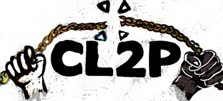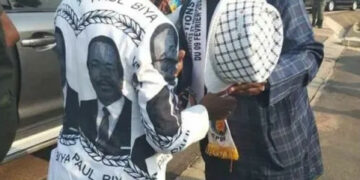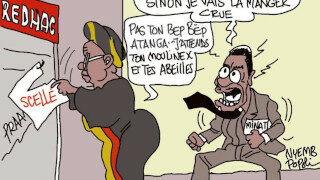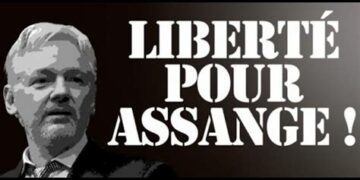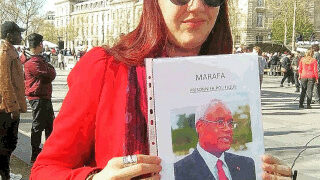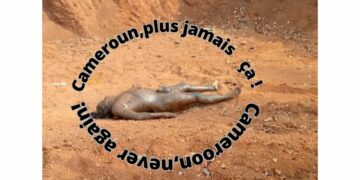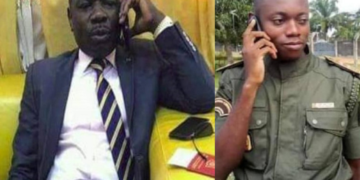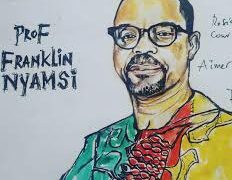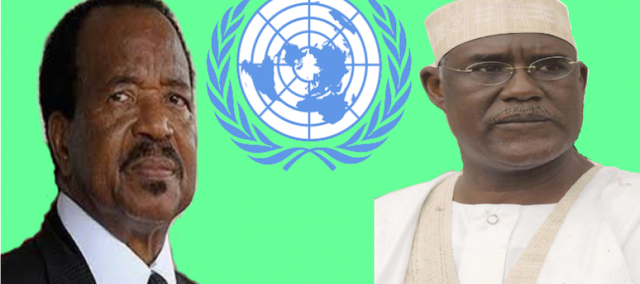Le grand éléphant dans la pièce: droits de l’Homme, mauvaise foi et non-respect chronique au Cameroun

Le Cameroun est un pays connu pour son «non-respect chronique» des recommandations du comité des droits de l’Homme des Nations Unies, condamnant notamment le statut des prisonniers politiques dans le pays. Il est en effet inacceptable que le régime de Paul Biya rejette systématiquement les avis du comité, ou « auto-juge et trie» parmi les traités internationaux relatifs aux droits de l’Homme. Parce que ce régime ne peut pas simplement choisir les conventions internationales qu’il daigne respecter et les droits y attachés qu’il voudrait concéder.
Bien que de par son fonctionnement le Comité des droits de l’homme des Nations Unies ne soit pas techniquement un organe judiciaire, ses recommandations «présentent toutefois certaines caractéristiques importantes d’une décision judiciaire. Ils sont obtenus dans un esprit judiciaire, y compris l’impartialité et l’indépendance des membres du comité « . Donc, les constatations du comité constituent « une détermination faisant autorité par un organe quasi judiciaire créé par le Pacte international relatif aux droits civils et politiques chargé de l’interprétation de ce traité ».
En conséquence, tous les États parties au PIDCP et à son PO sont liés par leurs dispositions et les conclusions du CDH, conformément au principe fondamental du pacta sunt servanda. L’article 26 de la Convention de Vienne sur le droit des traités (CVTL) illustre ce principe comme suit:
«Tout traité en vigueur lie les parties et doit être exécuté de bonne foi ».
Une règle essentielle concomitante du droit international coutumier est qu’aucun État partie à un traité ne peut invoquer les dispositions de son droit interne pour justifier le fait qu’il n’a pas exécuté un traité (article 27 de la Convention de Vienne). En vertu de l’article 27, les tribunaux nationaux de la CVDV sont tenus de donner effet à un traité ratifié.
La bonne foi signifie, entre autres, que lorsqu’un État partie se voit obligé de contester les constatations du CDH, il devrait présenter des arguments juridiquement solides et cohérents. Ce n’est pas le cas pour le gouvernement camerounais qui ignore superbement le PIDCP et les décisions de son organe décisionnel. Malheureusement, les États oublient souvent que le PIDCP est l’un des éléments constitutifs du système international des droits de l’Homme, qui, contrairement à d’autres traités relatifs aux droits de l’Homme tels que la CEDH, ne contient aucune clause de dénonciation.
C’est en effet une pierre angulaire du régime de droit international moderne qui mérite beaucoup plus d’attention et un respect effectif de la part de tous les États parties. En effet, le Comité des droits de l’homme des Nations Unies surveille le respect par les États membres du Pacte international relatif aux droits civils et politiques ainsi qu’un texte supplémentaire appelé Protocole facultatif. Le Cameroun a ratifié les deux textes, ce qui signifie qu’il est techniquement obligé de respecter les conclusions du comité.
Pourtant au Cameroun, avec le tribalisme exacerbé et les mesquineries politiciennes, le despote et les prétendus concurrents désignés par ses soins dans l’opposition piétinent allègrement les avis du même comité des droits de l’Homme de l’ONU, rendus notamment sur la détention arbitraire de potentiels candidats redoutés par tous comme Marafa Hamidou Yaya, en se vantant néanmoins – comble d’un cynisme teinté d’une cruauté pathologique – d’être de « grands démocrates respectueux de la légalité internationale ».
Quel « pays de Merde »!!!
Le CL2P, cependant, s’est toujours engagé à lutter contre toutes les persécutions politiques et les complots du despotisme légal propres au régime de Paul Biya. Nous ne renoncerons jamais.
Le Comité de Libération des Prsionniers Politiques – CL2P

English version
The Big Elephant in the Room: Human Rights, Bad Faith and Chronic non Compliance in Cameroon
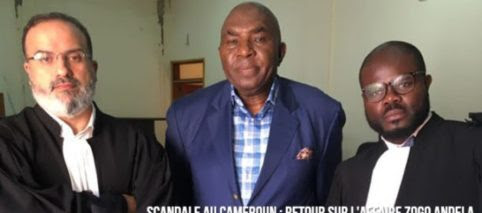 Cameroon is a country known for its “chronic non-compliance” with the committee’s recommendations, drawing particular condemnation over the status of political prisoners in the country. It is, indeed, unacceptable for the Biya’s regime to routinely reject the committee’s views, or “self-judge” international human rights treaties. The Biya’s regime cannot simply pick and choose which laws it seeks to follow and which rights it wants to uphold.
Cameroon is a country known for its “chronic non-compliance” with the committee’s recommendations, drawing particular condemnation over the status of political prisoners in the country. It is, indeed, unacceptable for the Biya’s regime to routinely reject the committee’s views, or “self-judge” international human rights treaties. The Biya’s regime cannot simply pick and choose which laws it seeks to follow and which rights it wants to uphold.While the function of the UN Human Right Committee, HRC, is not technically a judicial body, its Views, however, “exhibit some important characteristics of a judicial decision. They are arrived at in a judicial spirit, including the impartiality and independence of Committee members”. Hence, the Views of the committee are “an authoritative determination by a quasi-judicial organ established by ICCPR tasked with the interpretation of this treaty”.
As a consequence, every state party to ICCPR and its OP is bound by their provisions and the findings of the HRC, in accordance with the fundamental principle of pacta sunt servanda. Article 26 of the Vienna Convention on the Law of Treaties (VCLT) exemplifies this principle as follows: “Every treaty in force is binding upon the parties to it and must be performed in good faith”.
A vital, concomitant rule of customary international law is that no state party to a treaty may invoke the provisions of its internal law as justification for its failure to perform a treaty (Article 27 VCLT). Under Article 27 VCLT domestic courts are actually bound to give effect to a ratified treaty.
Arguably good faith means, inter alia, that when a state party feels obliged to contest the HRC’s Views it should provide arguments that are legally sound and coherent. This is not the case in the Cameroonian government disregarding ICCPR and its adjudicating organ’s decisions. Regrettably states often forget that ICCPR is one of the building blocks of the international human rights system, which, unlike other human rights treaties like ECHR, contains no denunciation clause. It is indeed a cornerstone of the modern international law regime that merits much more attention and effective respect by all states parties. Indeed, the UN Human Rights Committee monitors member states’ compliance with the International Covenant on Civil and Political Rights as well as a supplementary text called the Optional Protocol. Cameroon has ratified both texts, meaning it is technically obligated to abide by the committee’s findings.
In Cameroon, however, a regime ideologically opposed to human rights, and running on exacerbated tribalism and pettiness, the despot and his alleged opponents in opposition blithely trampled the advice of the same UN Human Rights Committee, notably on arbitrary detention of potential candidates feared by all like Marafa Hamidou Yaya, while boasting of being « great democrats respectful of international law ».
A sick case of politics before principle, always. What passes for “appeased democracy” in Cameroon is a deeply dysfunctional system, full of duplicitous, unprincipled politicians and badly needs major reform. Normal people will ask themselves: So why the hell do we get a seat at UNHCR? That’s just as hypocritical as us expecting to be at the table, and major concern is that this adds credence to the deplorable attitude to human rights. As suggested, the Biya’s regime wants its cake and be able to eat it too or, one set of rules for you and another for me. Obviously, that is not how international treaties work.
What a « shitty country”!!!
The CL2P, however, is committed to fight against all the political persecution and conspiracy of Biya’s legal despotism.
The Committee For The Release of Political Prisoners – CL2P
